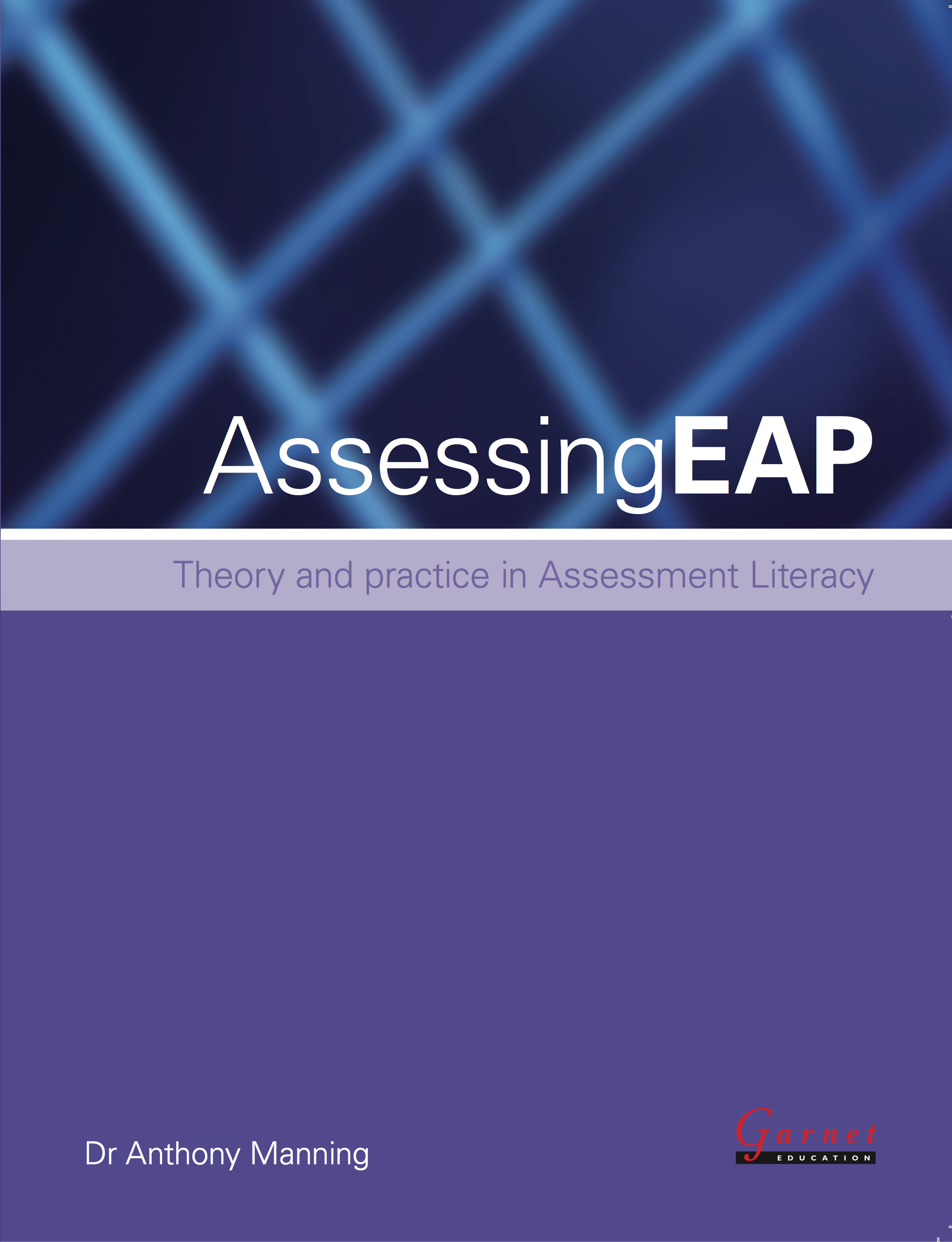Contents
EAP assessment purpose and function
Understanding construct validity in EAP assessment
Using test specifications to build EAP tests
Identifying and sampling the EAP that needs to be assessed
Preventing problems in EAP testing before they arise
Encouraging engagement, collaboration and research in EAP assessment
Marking, grading and the assessment of EAP for learning
Text selection, authenticity and specificity
Understanding statistics and how descriptive procedures can be used
to analyze EAP test results
Inferential statistics and applications in EAP assessment
Washback
Ethics
Building EAP test Assessment Literacy amongst stakeholders
Learning from large-scale standardized EAP tests
EAP assessment voices
Author details
Dr Anthony Manning is Dean for Internationalisation at the University of Kent and was formerly Director of the Centre for English and World Languages.
Anthony is one of the original creators of the TASK (Transferable Academic Skills Kit) series and he remains one of the main authors of the second edition of this range of books.
Also for Garnet, Anthony has written Assessing EAP and English for Language and Linguistics as part of the ESAP series. Anthony has written a number of other books and journal contributions for other publishers.
Before joining the University of Kent, Anthony was Assistant Director to what is now the International Study and Language Institute at the University of Reading. Anthony also taught in France, Germany, China and Japan. He has also been a lecturer at a Japanese College situated within the University of Durham, and at an International College in Reading.
Anthony has a Doctorate in Education and Applied Linguistics with a focus on language testing. He has delivered seminar papers at ALTE, IATEFL, InForm and BALEAP conferences on the subject of English for academic purposes, language assessment and academic skills development.
Reviews
"In this new contribution to EAP bookshelves, Manning presents a framework of skills and strategies for EAP assessment practitioners in a clear, highly-readable style. It is accessible, I am sure, even for newcomers to the field of language testing, and I have no doubt that it will become a valuable tool in the promotion of assessment literacy in EAP. In short, it is essential reading for all EAP assessment practitioners."
Lyndon Taylor, BALEAP Book review
"It is a very stimulating book which rightly promotes assessment of literacy, the ideas of which can be incorporated into EAP sections of ELT Masters and Delta courses. Time should be given to incorporate such techniques to develop fair, equitable testing. Assessing EAP is a much-needed addition to the EAP educator's arsenal."
Jonathan Clark, IATEFL Voices



